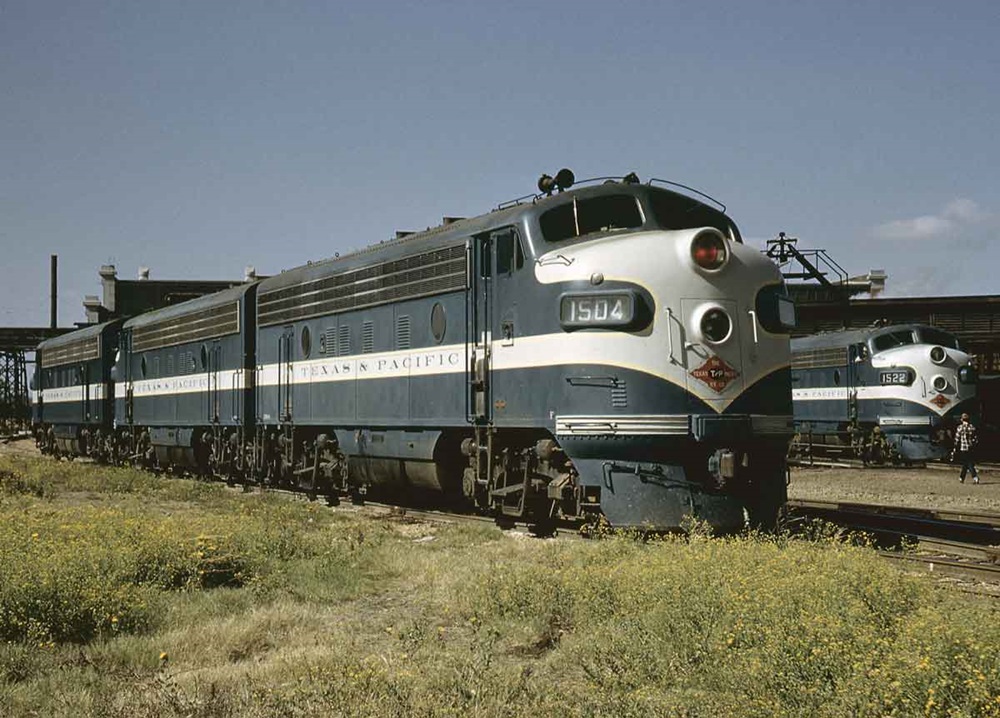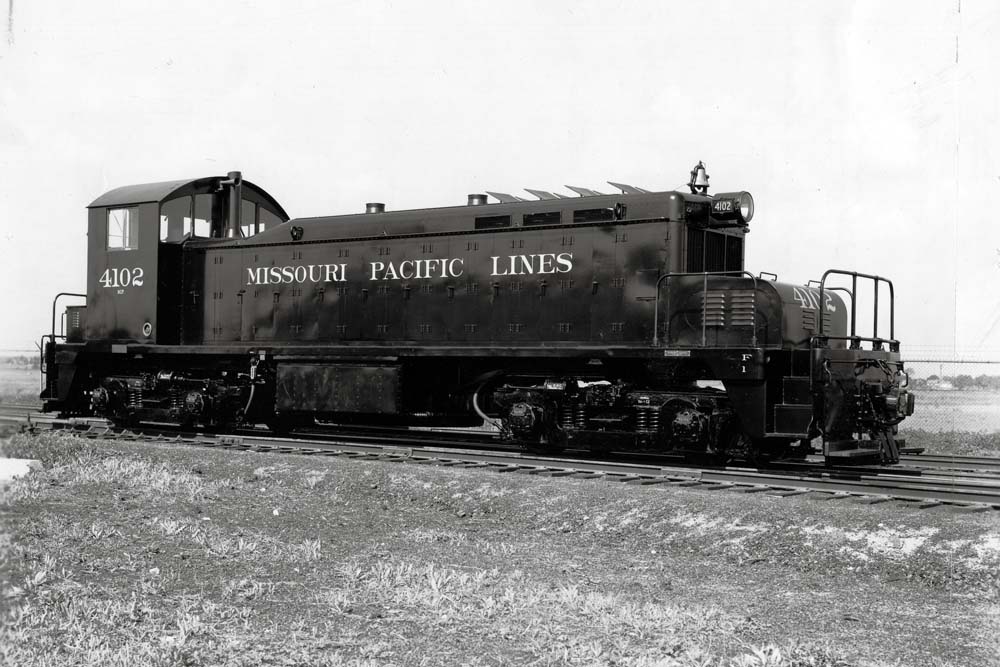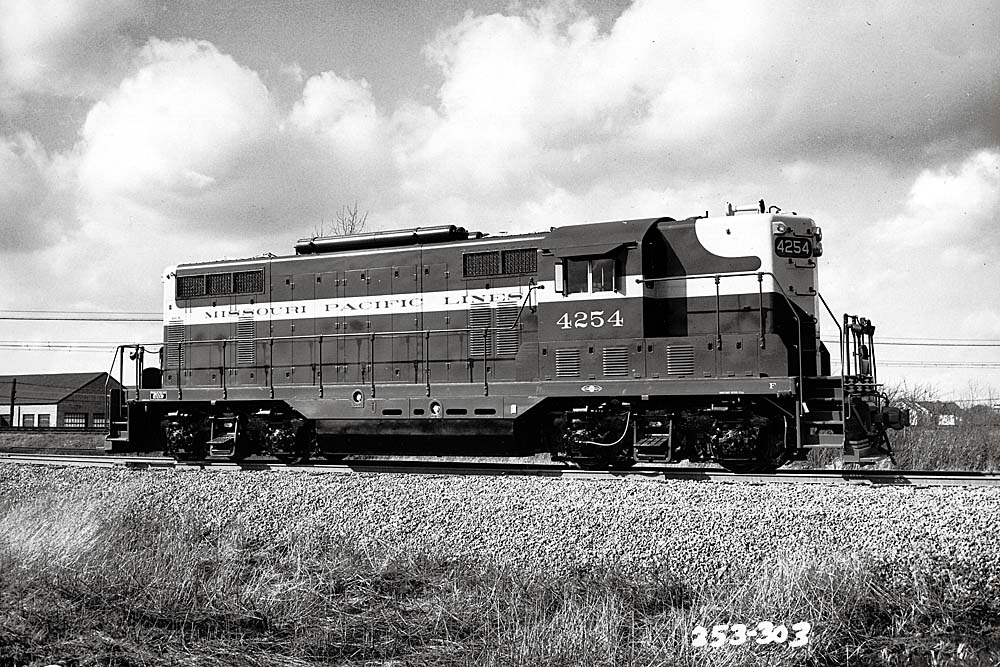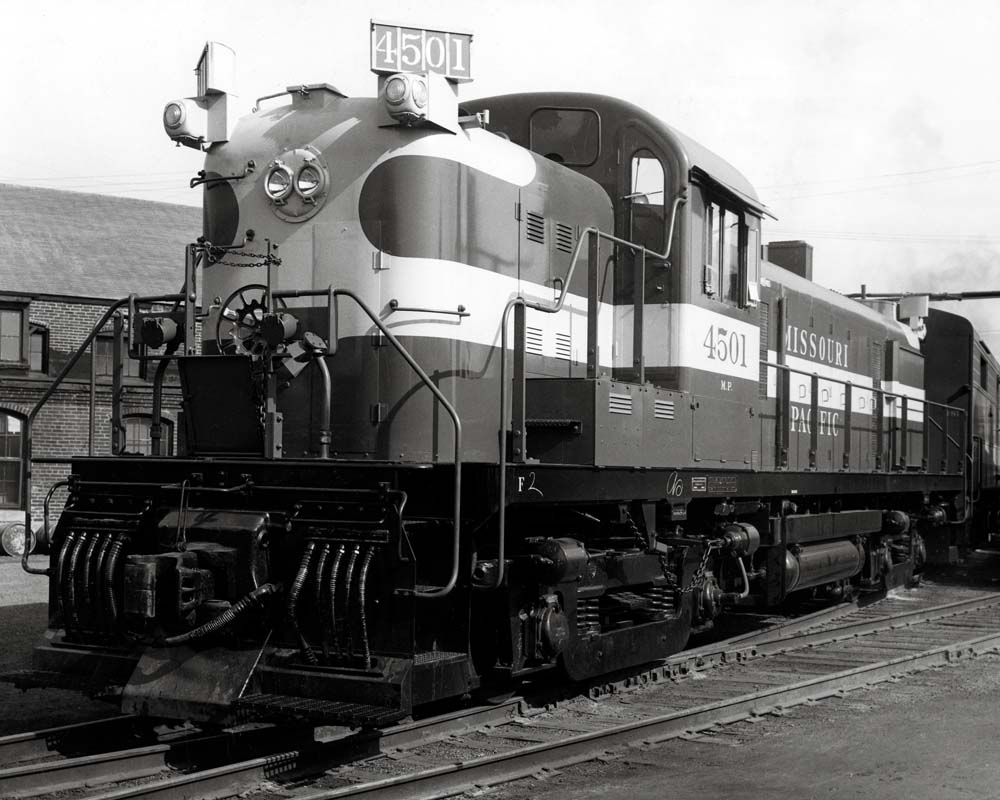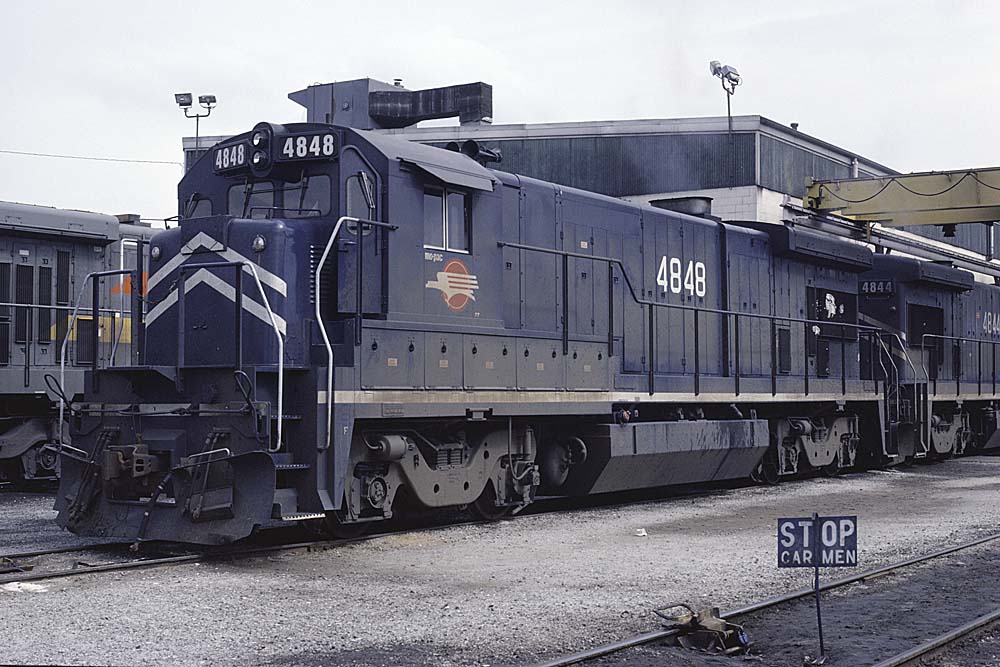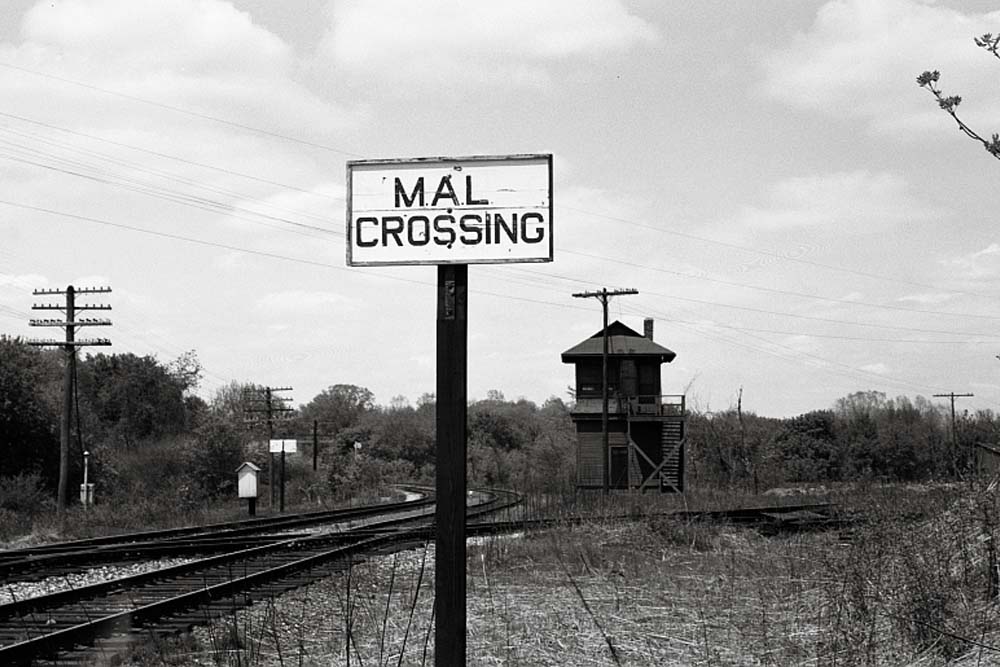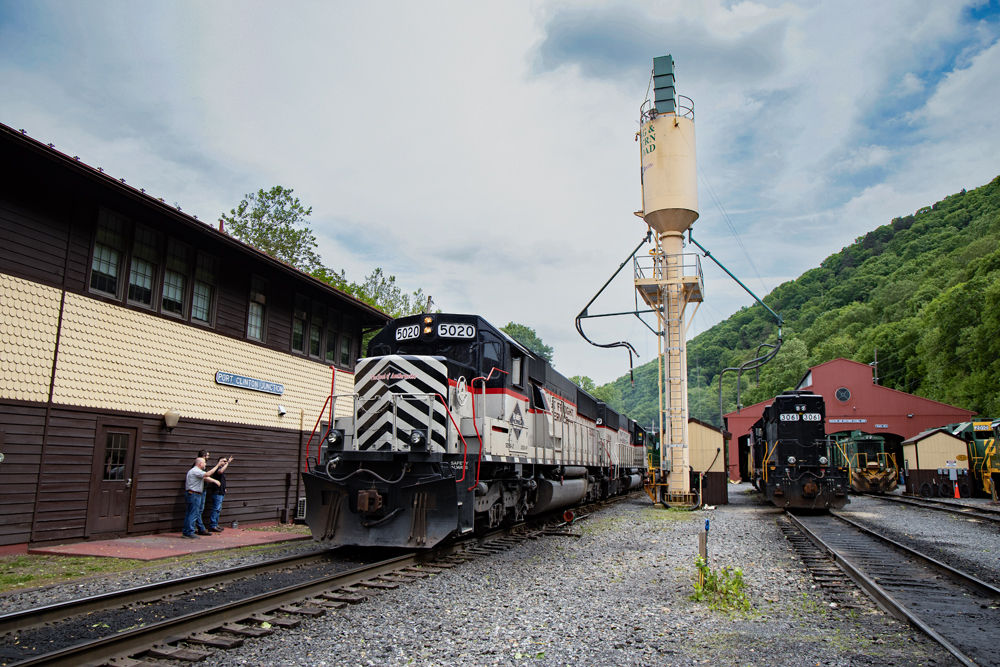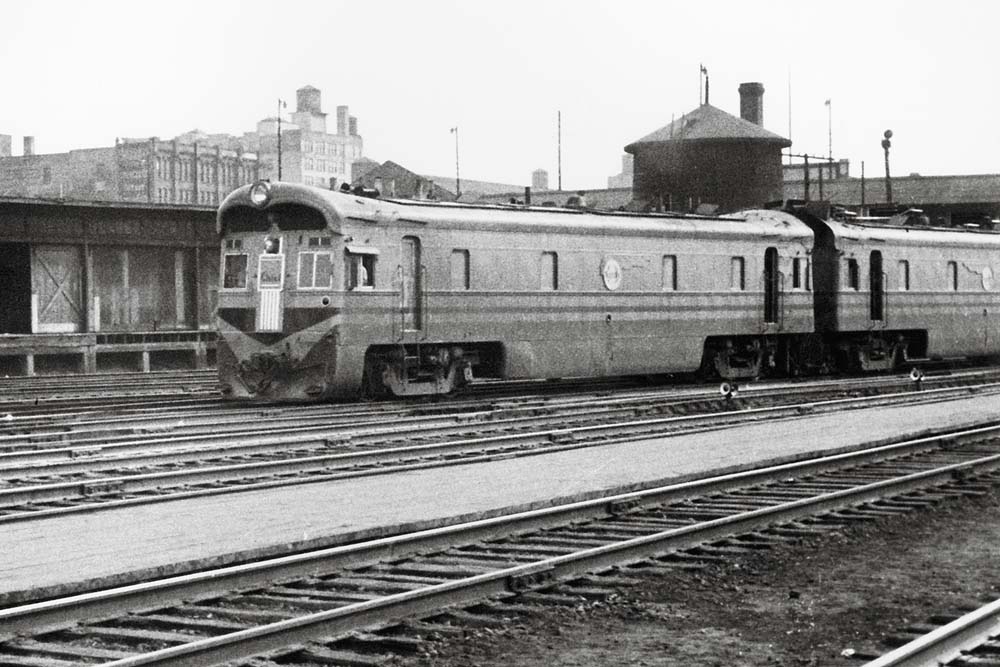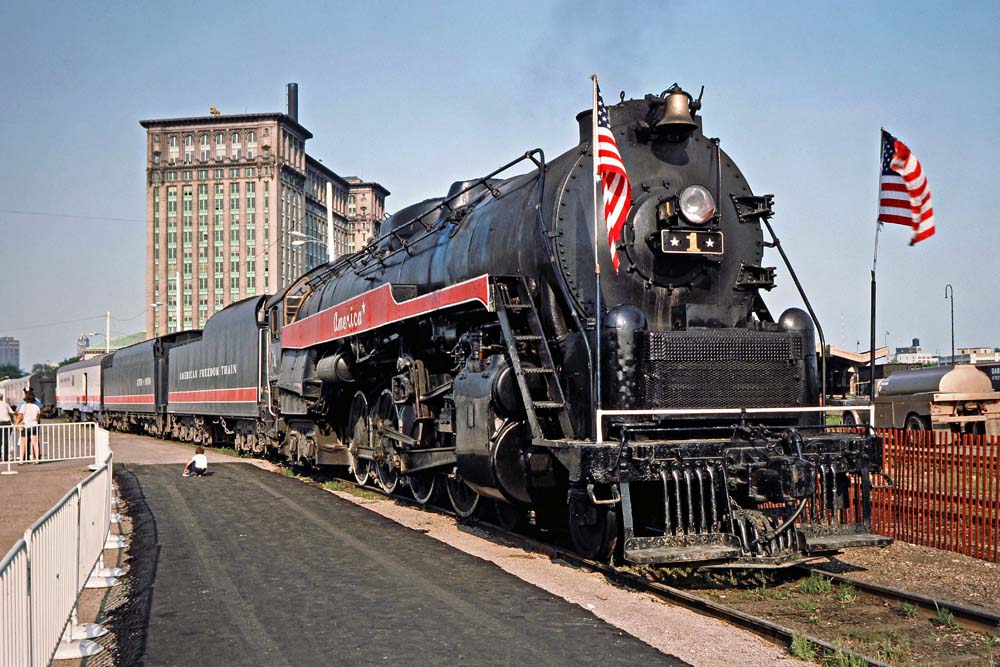Examples of steam and diesel show variety present in the classic era
Missouri Pacific locomotives, both steam and diesel, display a variety typical of their era.

Missouri Pacific 2-8-4 No. 1119 rolls a southbound freight over a new highway bridge at Austin, Texas, in 1948. Bruce F. Wilson photo
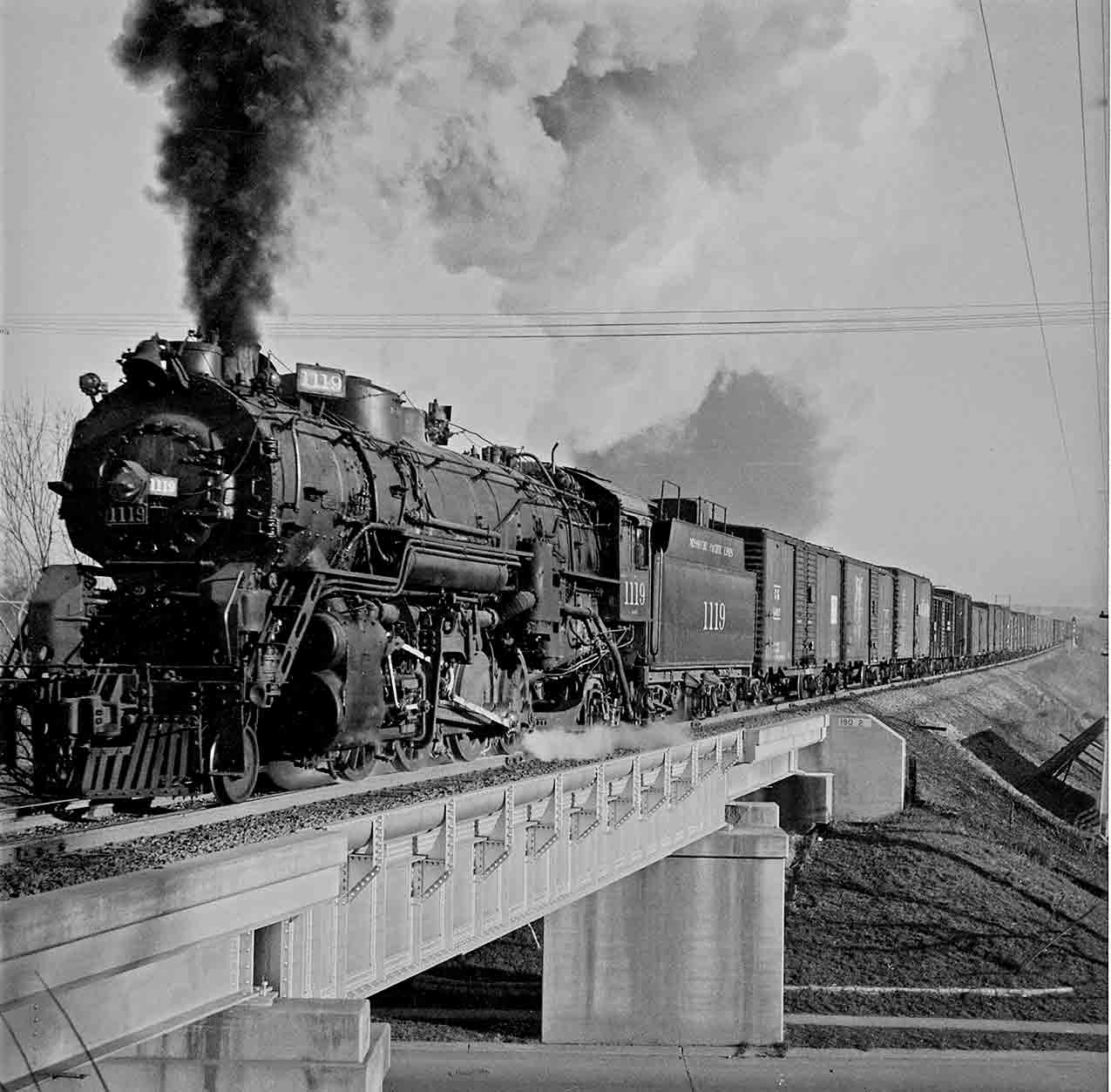

Bound for the main line at Gorham, Ill., Missouri Pacific 2-8-2 1498 slogs uphill out of DeSoto, Ill., with coal loads in September 1954. Philip R. Hastings photo
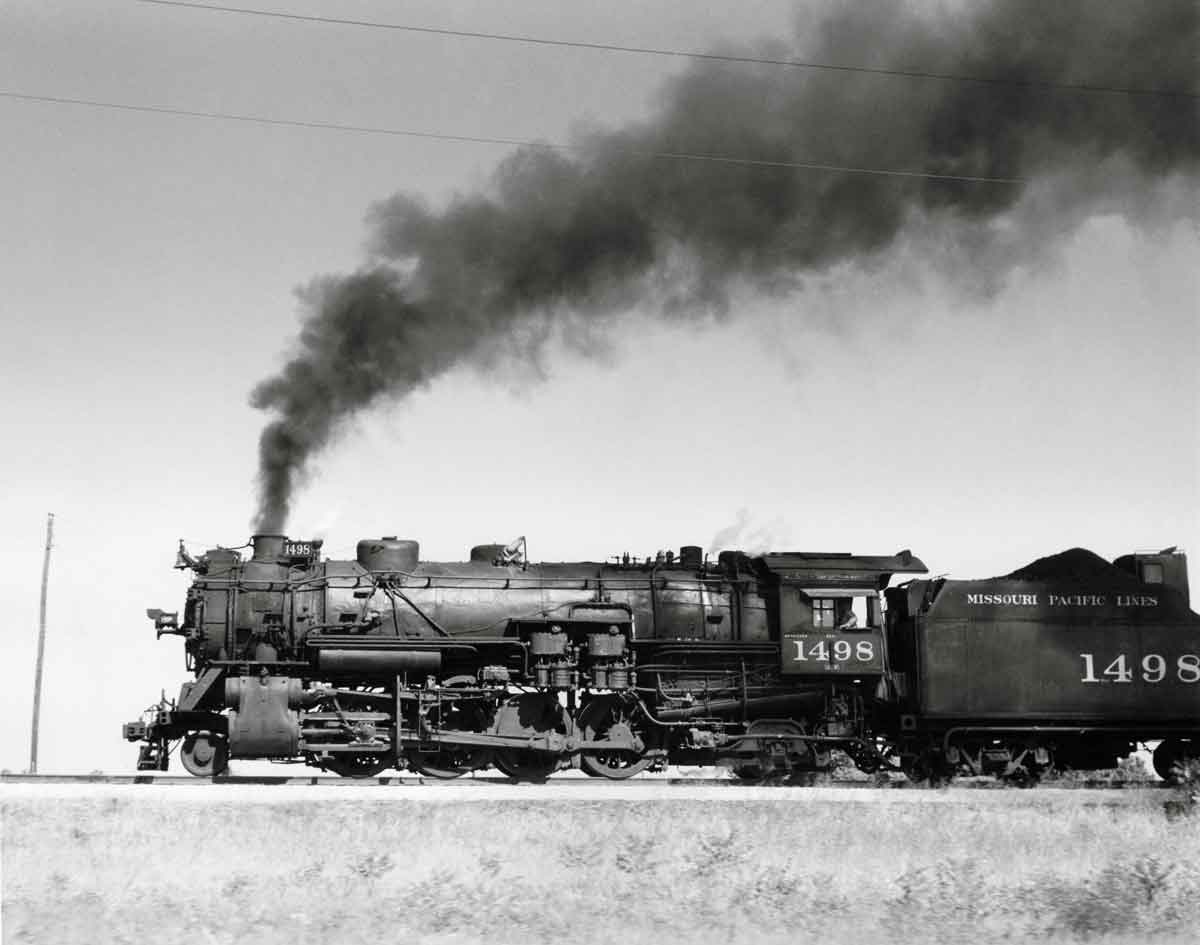

The head-end brakeman of a Missouri Pacific freight train looks out from his “doghouse” on the tender of 2-8-2 No. 1571 at Little Rock, Ark. J.M. Gray photo
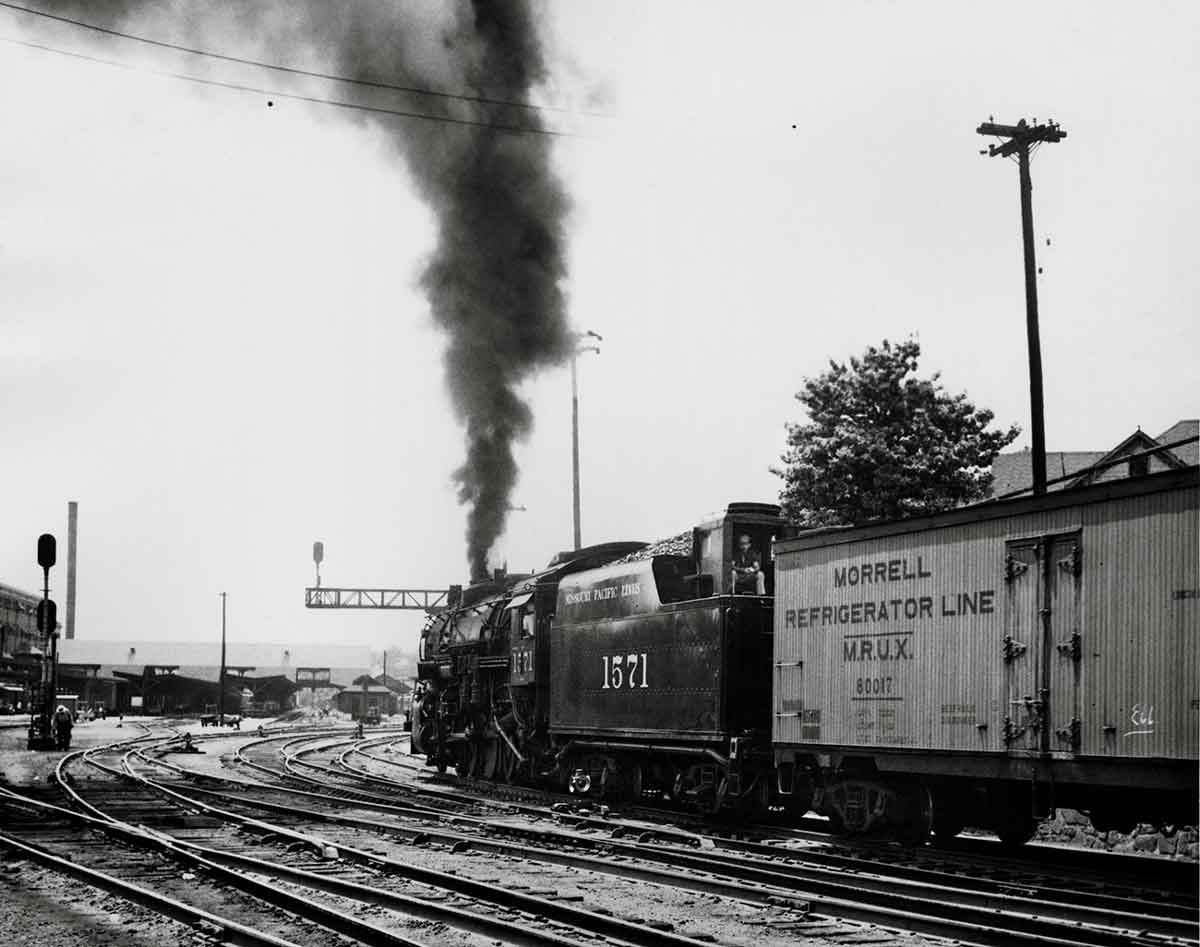

Two of Missouri Pacific’s 25 2-8-4 Berkshires, built by Lima in 1935, get underway with a freight at St. Louis. H.F. Harvey collection
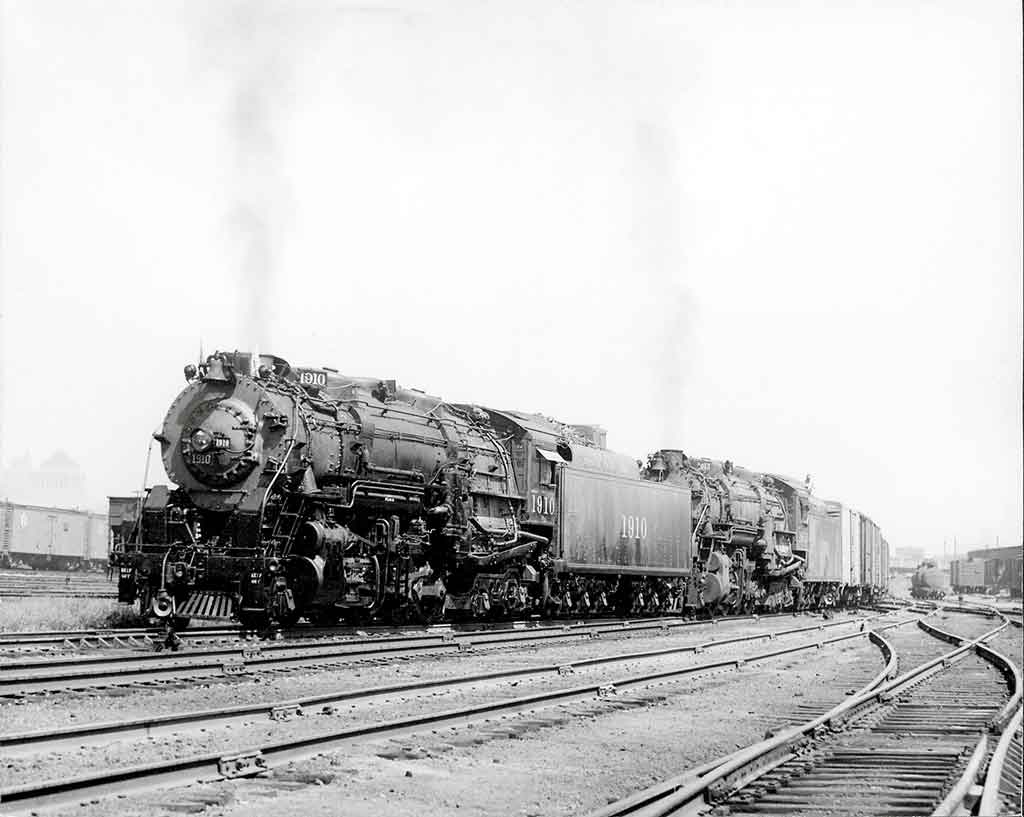

A Missouri Pacific Mountain-type 4-8-2 rolls an 83-car train under the coaling tower at Gurdon, Ark., in 1952. Soon, diesels would render the locomotive, and coaling tower, obsolete. The railroad had 29 such MT-73 class engines, Nos. 5308–5316 and 5335–5344, built by Alco between 1921 and 1930. All were retired by the end of 1956. J.M. Gray photo
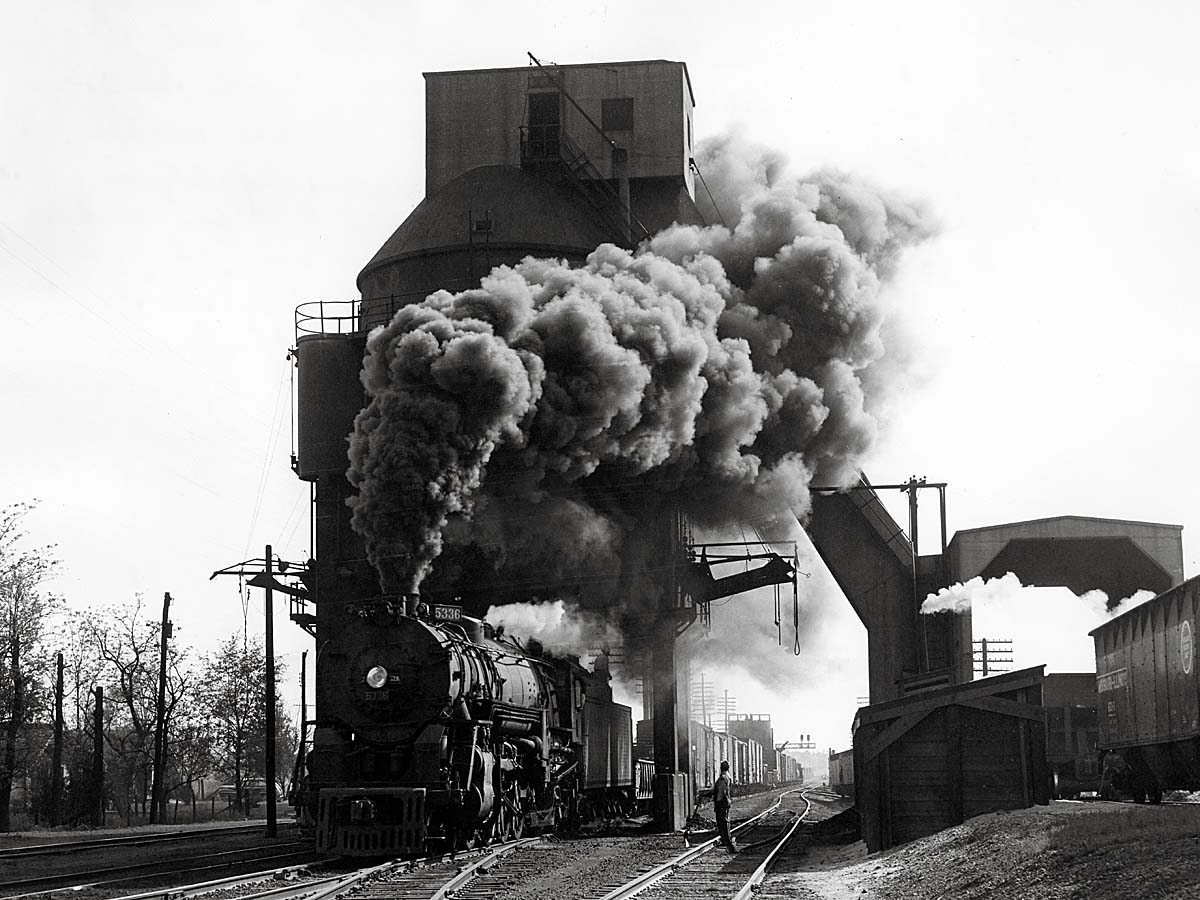

St. Louis, late 1940s: After a “race” that was not as close as the one author John Mills saw in 1941, MP 4-6-2 5327 rolls the Missourian past a Terminal Railroad Association Baldwin diesel as Frisco 4-8-2 4401 backs the Will Rogers into Union Station. Harold E. Williams photo
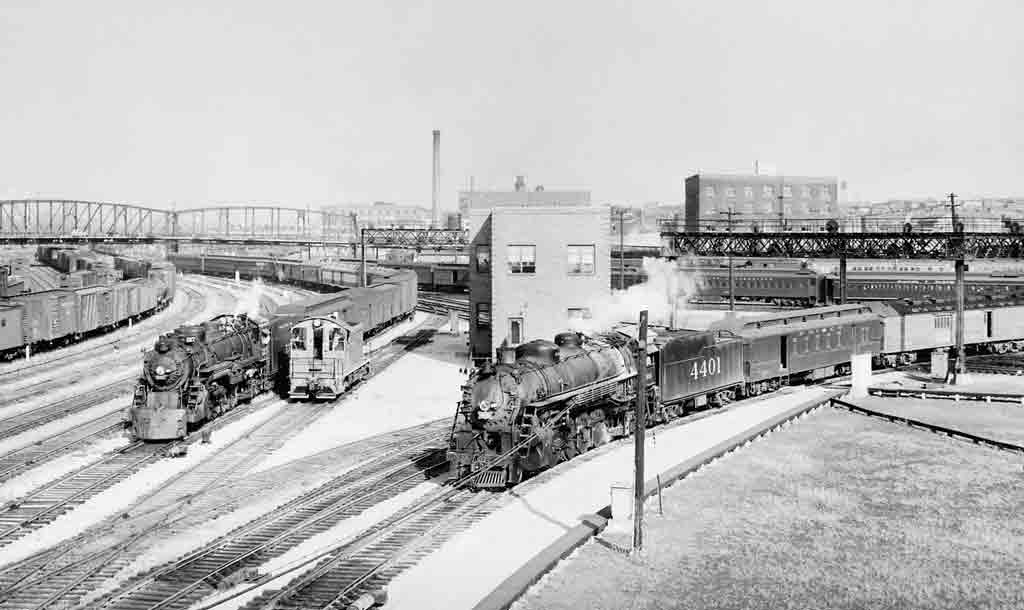

Missouri Pacific 4-6-2 6621 and St. Louis-Southwestern 4-6-0 663 await their next assignments at the Memphis Union Station engine house in October 1950. James G. La Vake photo
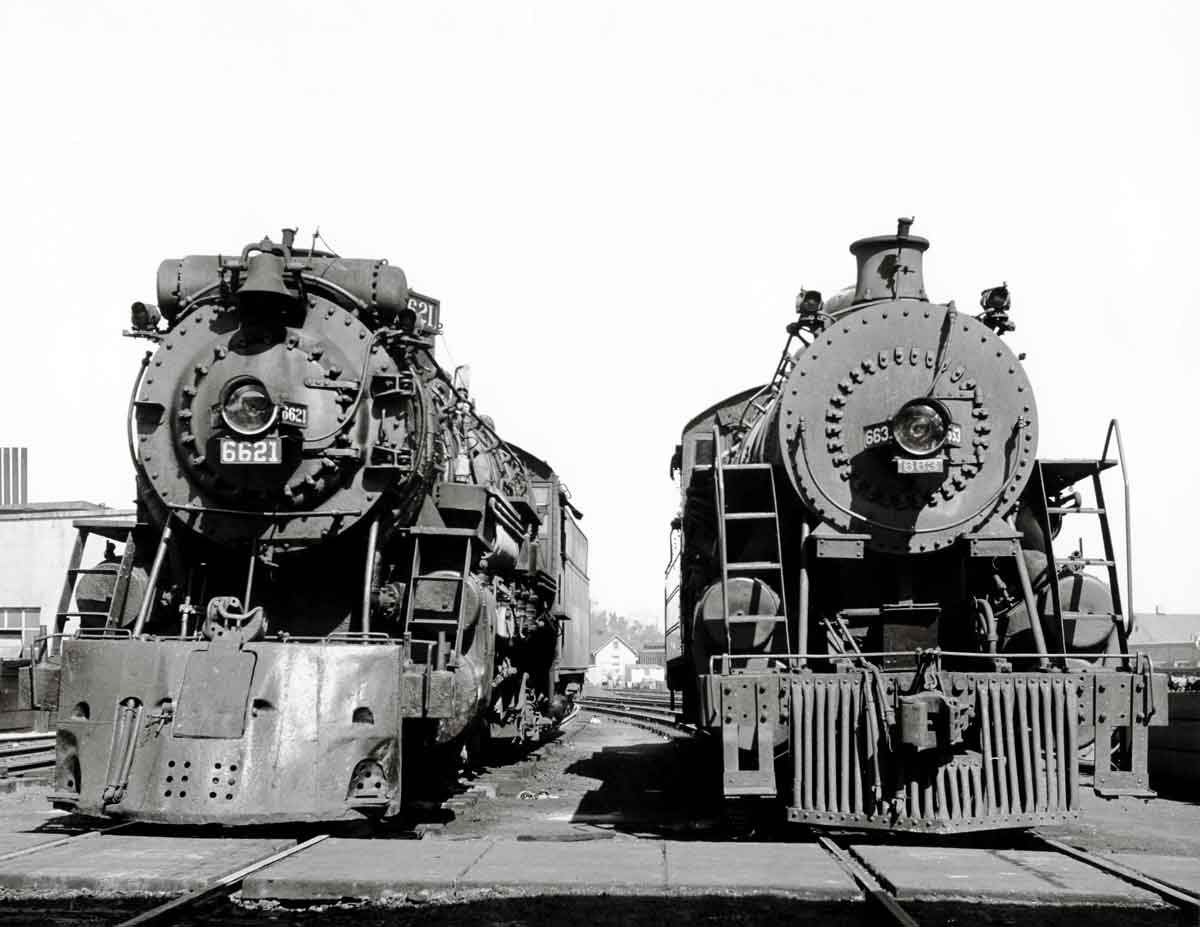

After a 2-10-2 and 4-8-4 stalled on MoPac’s Kirkwood Hill, an 0-8-0 and caboose couple up to render assistance. Joe Collias photo
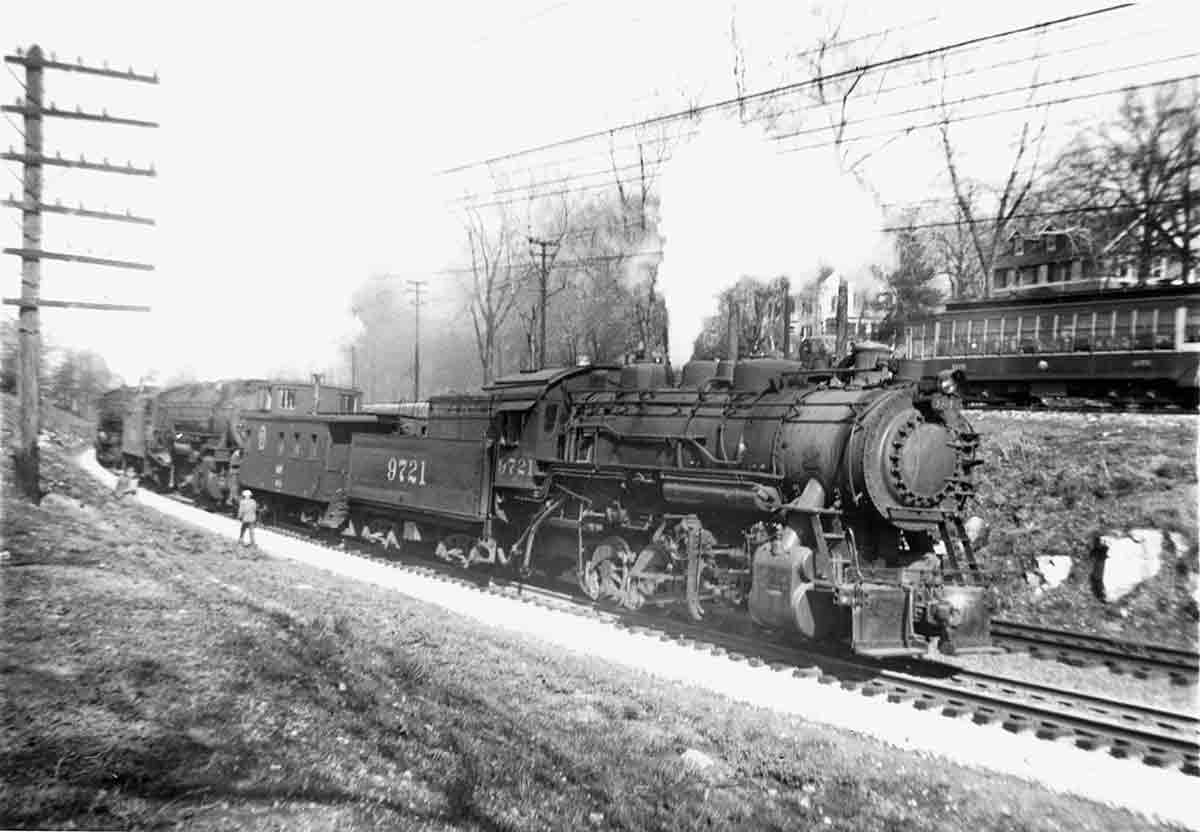

A metal emblem and lettering on the nose of Missouri Pacific E6 No. 7002 touts the diesel’s initial assignment to the joint MoPac-Rio Grande Colorado Eagle. When this photo was made in April 1948, the unit was preparing to depart St. Louis with the westbound Royal Gorge, another MoPac-D&RGW operation. Rick Church photo
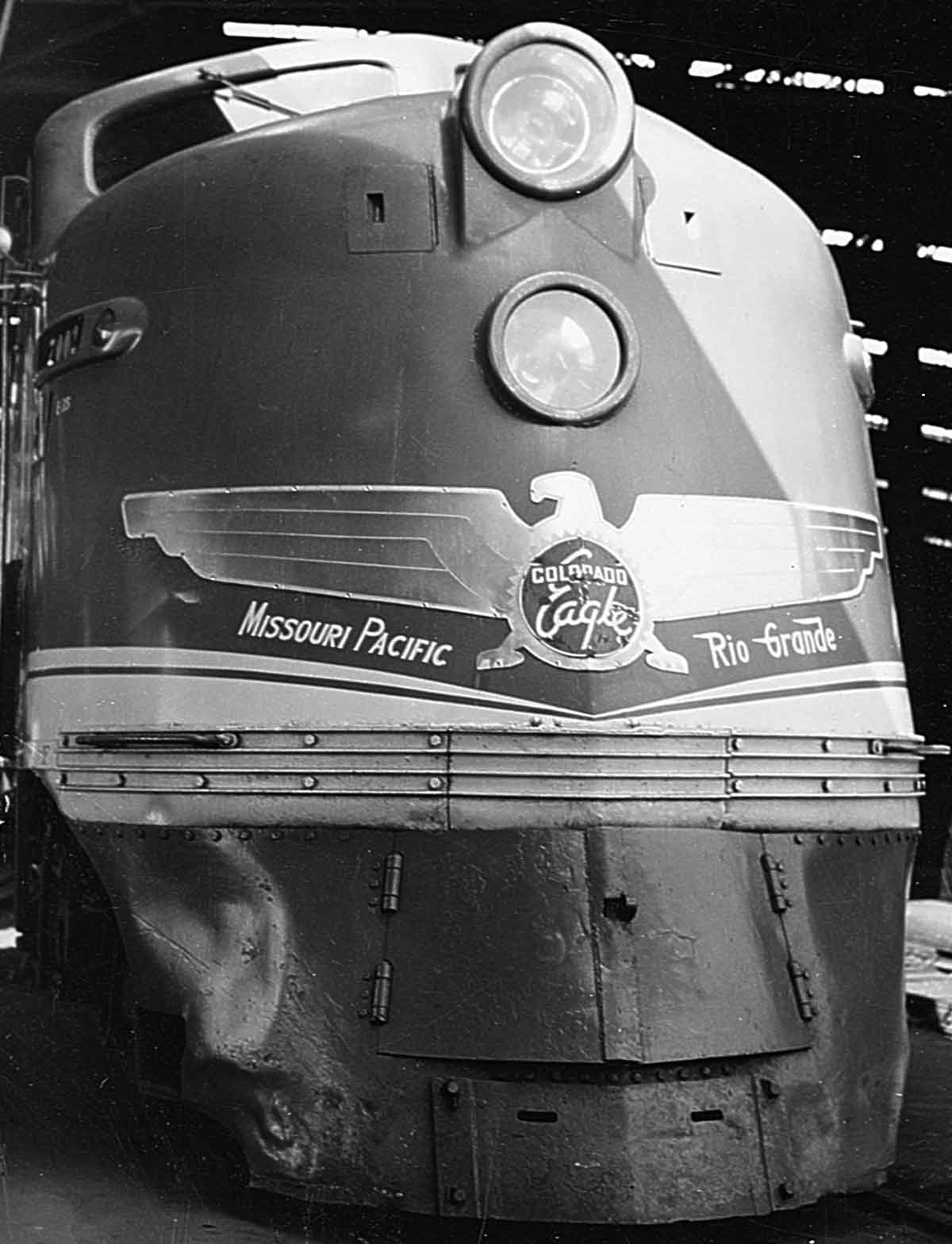

F7s of Missouri Pacific affiliate Texas & Pacific await assignment at Fort Worth in the early or mid-1950s. Linn Westcott photo


The tall stack between the cab windows on MoPac’s NW4 is for the steam generator, located in the hood next to the cab. The 900-hp NW4 was powered by a Winton 201A engine. MoPac bought the only two. EMD photo


Missouri Pacific GP7 No. 4252 has air reservoirs moved to its roof because of its large fuel tank. These were called “torpedo tube” Geeps. EMD photo


Missouri Pacific RS-3s have steam-style number boxes and class lights. Missouri Pacific photo


The GE B30-7A shares the same body as the B23-7, with six tall engine access doors. Missouri Pacific No. 4848 rides on GE’s FB-2 trucks. Jim Hediger photo

The “MoPac,” as it was called, merged several railroads during the diesel era, notably the International-Great Northern and St. Louis, Brownsville & Mexico in 1956, the Texas & Pacific (which it had long controlled) and Chicago & Eastern Illinois (which it had controlled since 1967) in 1976, and the Fort Worth Belt and Missouri-Illinois in 1977. The MP also purchased the Alton & Southern (1968). Locomotives originally owned by these smaller subsidiaries are indicated with the road number or in the notes. Texas & Pacific and C&EI each have their own listings; T&P and C&EI locomotives are only included here if they were still active at the time those railroads were merged into MP.
The Missouri Pacific merger into the Union Pacific was approved in 1982, with MP initially becoming a subsidiary of UP. Missouri Pacific diesels at first retained MP’s own paint scheme; in 1984 they began receiving yellow and gray paint but with “Missouri Pacific” lettering. This continued, with a couple of additional locomotive orders by MP, until 1986, when all subsequent repainting was done in UP colors and lettering.














